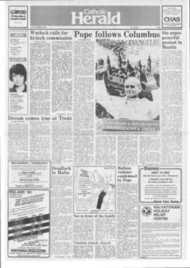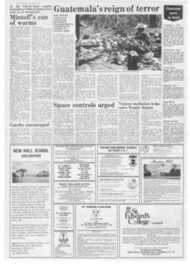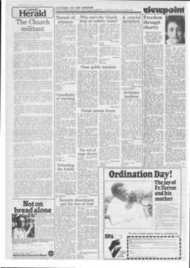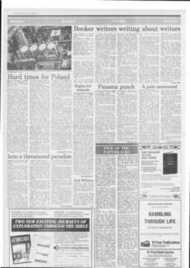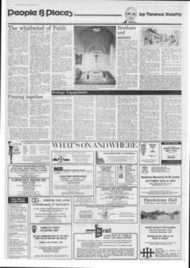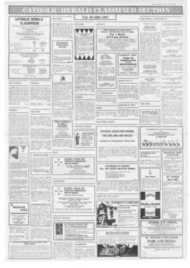Page 2, 12th October 1984
Page 2
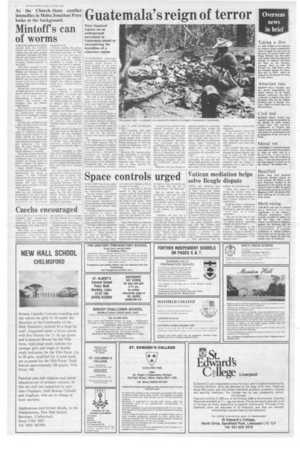
Report an error
Noticed an error on this page?If you've noticed an error in this article please click here to report it.
Tags
Share
Related articles
Was Johnson Taken In By A Smile?
Pr Omises Or 1802 Mu St R Irri
The Malta Story
Mintoff May Stop Elections And Blame Church
Malta Mounts Its Biggest Ever Protest
As the Church-State conflict intensifies in Malta Jonathan Petre looks at the background.
Mintoff's can of worms
A RECENT gallup poll in Malta showed that the Catholic Church still retains vastly more support than any other national institution, including the Dom Mintoff government which has tried for more than ten years to introduce "model socialism" to the island.
This result surprised no one given the fact that 98 per cent of Maltese are Catholics. But the government's position in the same poll must have disturbed Mintoff who has taken on the Church in the last of a series of stand-up fights with the Maltese establishment.
He has been victorious against the legal profession, the doctors and the official opposition, and
has, to a large eNtent,
implemented a number of policies that initially met resistance from the Maltese establishment.
The Church is his last major obstacle; he sees his battle with the ecclesiastical authorities more as an ideological crusade than a matter of practical polities.
The last ruler of Malta to pick a fight with the Church was left with a very bloody nose.
In 1798 Napoleon earned the wrath of Catholics because he failed to protect religion on the island. Instead he looted the local church, closed monasteries and transferred marriages to the civil authorities. Two years later, the angry Maltese, with British and French support, forced Napoleon's surrender.
The present dispute developed when the government last year introduced a law to expropriate property the Church could not prove it owned. The dispute is now a violent confrontation.
Nearly 100,000 Maltese, out of a total population of 370,000, demonstrated last month in support of eight Catholio schools that the government had refused operating licences because they were charging tuition fees in defiance of a law passed in April.
Archbishop Mercieca of Malta has also challenged the government in the courts where it has lodged an appeal against the education act and had the property act declared unconstitutional.
Church teaching has always had a marked impact on Malta's government and laws. Its 1964 constitution declared
ax the country's official religion. Today catechism is taught in its schools, and divorce is banned.
But signs of a serious split between Church and State appeared as early as 1964. Malta's labour party opposed then the constitution's official recognition of Catholicism and claimed that Malta's bishops would run a "clerical form of colonialism".
In response, the Church accused Mintoff, a Catholic whose brother is a priest, and the labour party of anticlericalism. From 1961 to 1964, the Church placed an interdict on Mintoff and the party's executive council, excluding them from many Church ceremonies and sacraments.
After losing the general election in 1966, Mintoff blamed Church "intervention", because the bishops had warned Catholics against voting for his party.
Mintoff returned to power in 1971, his hatred of the Church redoubled. He had managed, however, to strike a deal whereby the Church had agreed to refrain from anti-Labour pressure, while Mintoff recognised the Church's right to teach.
Friction intensified in 1982 when Mintoff asked Pope John Paul II to remove Archbishop Mercieca because the prelate had not opposed an opposition party move to establish the feast of Sts Peter and Paul as a national holiday.
Not many people believe the government's repeated assertion that the issue is merely over whether every citizen has the right to a free education. Archbishop Mercieca, who has said the schools will open despite the government's threat to use force to keep them closed, argues that the laws affecting Church schools and property would, if effected, seriously damage the Church financially and limit it pastorally.
blog comments powered by Disqus


